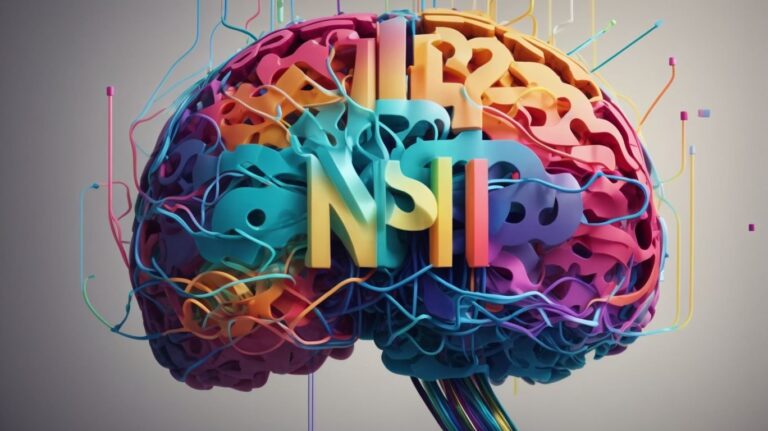Have you ever wondered about the appeal of being called “Daddy” in a relationship? The use of this term of endearment goes beyond just a simple nickname and can have a significant psychological impact.
From childhood experiences to power dynamics and emotional connections, there are various reasons why some individuals find being called Daddy appealing. There are also potential risks associated with using this term, such as reinforcing gender stereotypes and creating unhealthy power dynamics.
How does society view the use of Daddy as a term of endearment? And what are some alternatives to consider? Let’s explore the complex dynamics of this relationship dynamic in more detail.
Contents
- 1 What is the Appeal of Being Called Daddy?
- 2 What is the Psychological Impact of Being Called Daddy?
- 3 What are the Potential Reasons for the Appeal of Being Called Daddy?
- 4 What are the Potential Risks of Using Daddy as a Term of Endearment?
- 5 How Does Society View the Use of Daddy as a Term of Endearment?
- 6 What are Some Alternatives to Using Daddy as a Term of Endearment?
- 7 Frequently Asked Questions
- 7.1 What is the psychological appeal of being called “daddy” in a romantic or sexual context?
- 7.2 Is the appeal of being called “daddy” related to childhood experiences or traumas?
- 7.3 Does being called “daddy” only appeal to men, or can women also enjoy it?
- 7.4 Is being called “daddy” a form of incest or pedophilia?
- 7.5 Can the appeal of being called “daddy” vary among individuals?
- 7.6 Is there a psychological explanation for why some people enjoy being called “daddy” in a non-romantic or sexual context?
What is the Appeal of Being Called Daddy?
The appeal of being called Daddy often stems from a complex interplay of psychological factors, intimacy in relationships, and the dynamics of love.
When someone is referred to as Daddy in a romantic or intimate context, it can evoke a sense of protection, care, and authority. This term goes beyond the literal meaning of father and taps into deeper emotional connections. It can signify a power dynamic, with one partner taking on a more dominant, nurturing role. The use of such terms can create a feeling of security and belonging, fostering a sense of intimacy and trust in the relationship. Psychologically, it may also fulfill certain emotional needs, such as validation, acceptance, and affection.
What is the Psychological Impact of Being Called Daddy?
The psychological impact of being called Daddy can have profound effects on relationships, intimacy, and individual vulnerability within the dynamic.
Terms of endearment like Daddy can be both endearing and complex, tapping into deep-seated emotions and psychological responses. Such language carries a weight of power dynamics, nurturing instincts, and a sense of protection and care.
It can create a unique bond between partners, blurring lines between romantic and paternal roles. The use of these terms reflects a level of trust and comfort within a relationship, allowing for a heightened sense of intimacy and vulnerability.
It is crucial to navigate such terms with mutual understanding and consent to ensure they enhance, rather than hinder, the dynamics of the partnership.
What are the Different Meanings of Being Called Daddy?
The term Daddy holds various meanings when used in different contexts, ranging from a playful moniker between partners to a role that delves into power dynamics and control.
For some, referring to their partner as ‘Daddy’ can convey feelings of affection, protection, and nurturing. It serves as a term of endearment that establishes a sense of intimacy and closeness in a relationship, often associated with care and guidance.
On the contrary, in alternative relationship dynamics, the term ‘Daddy’ can symbolize a power exchange where one partner takes on a dominant, authoritative role, emphasizing control and discipline. This interpretation delves into deeper psychological aspects of submission and dominance, exploring desires for structure and guidance.
What are the Potential Reasons for the Appeal of Being Called Daddy?
The appeal of being called Daddy can be attributed to multiple reasons, including the exploration of power dynamics, control, and elements of dominance and submission within certain kink dynamics.
For many individuals, the term ‘Daddy’ goes beyond its literal meaning and taps into a deeper realm of psychological gratification. It can evoke feelings of safety, nurturing, and guidance, fostering a sense of protection and authority. The use of this term can create a dynamic that plays into the primal instincts of protection and provision, establishing a security blanket within the relationship. It can symbolize a level of trust and vulnerability, where one person willingly surrenders control to another in a consensual manner.
Childhood Experiences
Childhood experiences play a pivotal role in shaping the appeal of being called Daddy, influencing the formation of bonds, affections, and emotional connections.
These early interactions with parental figures, particularly with fathers, lay the groundwork for how individuals perceive the term ‘Daddy’ in their later relationships. The sense of security, trust, and love experienced in childhood can deeply impact one’s yearning for those same feelings in their romantic or parental bonds.
Psychologically, childhood memories linked to the notion of ‘Daddy’ often evoke a mix of nostalgia, comfort, and sometimes vulnerability, which can significantly shape one’s attachment style and emotional responses in adulthood.
Power Dynamics
Power dynamics play a crucial role in the appeal of being called Daddy, involving elements of authority, communication, and the negotiation of roles within the relationship.
When navigating a relationship with the term ‘Daddy,’ individuals often step into well-defined roles that go beyond mere labels. The dynamics at play are multi-faceted, encompassing not just the surface level of the title but delving deep into matters of power and control. It’s about establishing a sense of dominance and submission, where the boundaries are fluid and constantly negotiated.
Within this framework, communication becomes key. Open lines of dialogue are essential for both partners to express their needs, desires, and limits. The term ‘Daddy’ carries a weight of authority, signaling a certain dynamic that requires clear communication to navigate successfully.
Dominance and Submission
Exploring dominance and submission dynamics is a key aspect of understanding the appeal of being called Daddy, often intertwined with elements of BDSM and fantasy play
When we look closer at the concept of being referred to as Daddy in the realm of BDSM and fantasy, we see how it taps into power dynamics, trust, and role-playing. The term ‘Daddy’ can symbolize authority, nurturing, protection, and control within a consensual relationship. It’s not necessarily a literal father-daughter dynamic, but more about the exchange of power and care. This role can create a sense of security and vulnerability, allowing individuals to explore desires and boundaries in a safe and controlled environment.
Emotional Connection
Emotional connections and vulnerabilities form the basis of the appeal of being called Daddy, fostering deeper bonds and heightened levels of affection within relationships.
When someone affectionately refers to their partner as Daddy, it often evokes a sense of security, nurturing, and a deep emotional attachment. This term goes beyond the conventional labels and taps into a more profound level of intimacy, where both partners feel a strong emotional connection. The dynamics of using the term Daddy in a relationship create a safe space for vulnerability, allowing individuals to express their deepest desires and needs without inhibition.
What are the Potential Risks of Using Daddy as a Term of Endearment?
Using Daddy as a term of endearment carries inherent risks within relationships, potentially reinforcing gender stereotypes, affecting power dynamics, and influencing communication patterns.
When someone refers to their partner as ‘Daddy,’ it can evoke societal norms and expectations tied to traditional gender roles. This might reinforce the idea of a dominant-submissive dynamic in the relationship, impacting how power is perceived and exercised. The use of this term can also raise questions about equality and autonomy in the partnership.
The implications extend to communication styles, as the choice of language can shape the tone and boundaries within the relationship. A lack of clarity or mismatch in understanding the connotations of ‘Daddy’ can lead to misunderstandings or discomfort.
Reinforcing Gender Stereotypes
The use of Daddy as a term of endearment can contribute to reinforcing traditional gender stereotypes, influencing power structures and perceived authority within relationships.
When the term ‘Daddy’ is used in a romantic or intimate context, it often signifies a dynamic where one partner takes on a more dominant or protective role, while the other assumes a more submissive or nurturing position.
This dynamic can reverberate through various aspects of the relationship, influencing decision-making processes, communication styles, and even the distribution of responsibilities.
The perceived authority associated with the term ‘Daddy’ may also impact how each partner views their role within the relationship, potentially reinforcing societal norms around masculinity and femininity.
Creating Unhealthy Power Dynamics
The adoption of Daddy as a term of endearment can lead to the development of unhealthy power dynamics within relationships, affecting control, dominance, and relational balance.
When one partner assumes the role of ‘Daddy,’ it can inadvertently create a dynamic where control issues become prevalent. This shift in power dynamics may lead to imbalances in decision-making processes and overall authority within the relationship.
Using the term ‘Daddy’ can contribute to reinforcing dominance, potentially overshadowing the importance of mutual respect and equal partnership. This reinforcement of dominance can impact relational harmony, as it may blur the lines between healthy assertiveness and controlling behaviors.
Impact on Relationships
The impact of using Daddy as a term of endearment extends to relationships, influencing communication patterns, vulnerability levels, and the depth of intimacy experienced within the dynamic.
When this term is used within a relationship, it often signifies a sense of care, protection, and authority exhibited by one partner. The nuances behind the term can forge a unique bond, characterized by a blend of affection and respect. Despite its connotations, the use of this term may pose challenges in external perceptions due to its unconventional nature. Psychological Analysis: The Appeal of Being Called Daddy
Communication in such dynamics becomes crucial, as both individuals navigate the balance of roles and expectations. Open dialogue is essential to ensure both partners feel heard and understood, especially when addressing sensitive topics or conflicts that may arise.
Vulnerability takes on a different dimension in relationships where this term is embraced. The power dynamic inherent in the term can influence how comfortable individuals feel in expressing their emotions, fears, and desires.
How Does Society View the Use of Daddy as a Term of Endearment?
Society’s perceptions of using Daddy as a term of endearment vary across cultural differences, social stigmas, and levels of acceptance within different societal contexts.
While some societies embrace the term Daddy as a symbol of intimacy and affection within relationships, others may frown upon its usage due to ingrained social norms and values. In certain cultures, addressing a partner as Daddy can be met with raised eyebrows and misconceptions.
The acceptance of the term can depend greatly on historical, religious, and societal beliefs entrenched in a particular community. For example, in more conservative societies, the term Daddy might carry negative connotations or be perceived as inappropriate when used in public settings.
Cultural Differences
Cultural differences significantly impact how the use of Daddy as a term of endearment is perceived within societies, influencing levels of acceptance and societal norms.
The concept of Daddy varies greatly across cultures, with some societies viewing it as a form of endearment and affection, while others may consider it controversial or inappropriate.
In many Western cultures, referring to a father figure or partner as Daddy can be seen as cute or even romantic. In more conservative or traditional societies, such as certain Eastern cultures, using the term Daddy can be associated with notions of authority, dominance, or even taboo relationships.
Social Stigmas
Social stigmas surrounding the use of Daddy as a term of endearment impact how relationships are perceived within society, influencing judgment and acceptance levels.
These stigmas are deeply rooted in societal norms that dictate what is acceptable in terms of affectionate language within relationships.
The term ‘Daddy’ often triggers negative connotations due to its association with paternal figures, leading to judgmental attitudes and stereotypes about those who use it. Such preconceived notions can hinder the acceptance of diverse expressions of endearment and create a barrier to embracing unconventional relationship dynamics.
Acceptance and Rejection
The levels of acceptance and rejection regarding the use of Daddy as a term of endearment vary within society, reflecting differing attitudes towards unconventional relationship dynamics.
There are complex and multifaceted reasons behind this wide spectrum of acceptance and rejection. Societal norms, cultural influences, personal experiences, and generational differences all play a role in shaping individuals’ perceptions of this term. For some, using Daddy may evoke a sense of intimacy, care, and protection, fostering a deeper emotional connection in a relationship. On the other hand, those who reject this term might associate it with power dynamics, paternalistic connotations, or uncomfortable implications.
The impact of acceptance or rejection of the term Daddy can significantly influence the dynamics within a relationship. It can shape communication patterns, establish boundaries, and even impact the overall power structure within the partnership. Understanding these intricate nuances is crucial in navigating the complexities of modern relationships and fostering mutual respect and understanding.
What are Some Alternatives to Using Daddy as a Term of Endearment?
In place of using Daddy as a term of endearment, there are various alternatives that individuals can explore to express affection and endearment towards their partners in relationships.
It is crucial to find a term that feels comfortable and meaningful for both partners.
Establishing a loving nickname fosters intimacy and connection in a relationship, and there are numerous options to choose from: terms like
- Sweetheart
- Love
- Honey
- Beloved
- Darling
- My Love
can convey deep affection without using the term Daddy. Embracing an endearing term can create a special bond and enhance communication between partners, strengthening the emotional aspect of their relationship.
Frequently Asked Questions
What is the psychological appeal of being called “daddy” in a romantic or sexual context?
The term “daddy” has different meanings for different people, but in a romantic or sexual context, it often taps into deep psychological desires for safety, protection, and dominance. Being called “daddy” can also evoke feelings of being needed and desired, as well as fulfilling a power dynamic within the relationship.
Not necessarily. While some individuals may have had positive or negative experiences with their own fathers that influence their attraction to the term, for many, the appeal lies in the power dynamic and role-playing aspect of being called “daddy” in a consensual and safe setting.
Does being called “daddy” only appeal to men, or can women also enjoy it?
The appeal is not limited to any specific gender. Both men and women can find pleasure and fulfillment in being called “daddy” or using the term with their partner. It all depends on individual preferences and desires.
Is being called “daddy” a form of incest or pedophilia?
No, the use of the term “daddy” in a romantic or sexual context does not necessarily reflect any attraction to actual family members or minors. It is a consensual and playful way of expressing certain desires and dynamics within a relationship.
Can the appeal of being called “daddy” vary among individuals?
Yes, the appeal of being called “daddy” can vary greatly among individuals. Some may find it arousing and empowering, while others may not be comfortable with it at all. It is important to communicate with your partner and respect their boundaries and preferences.
Is there a psychological explanation for why some people enjoy being called “daddy” in a non-romantic or sexual context?
It is possible that the term “daddy” can evoke feelings of nostalgia or comfort for some individuals, leading to a sense of security and protection. Others may simply enjoy the playful and affectionate connotations of the term. Ultimately, the reasons may vary and can be different for each person.





